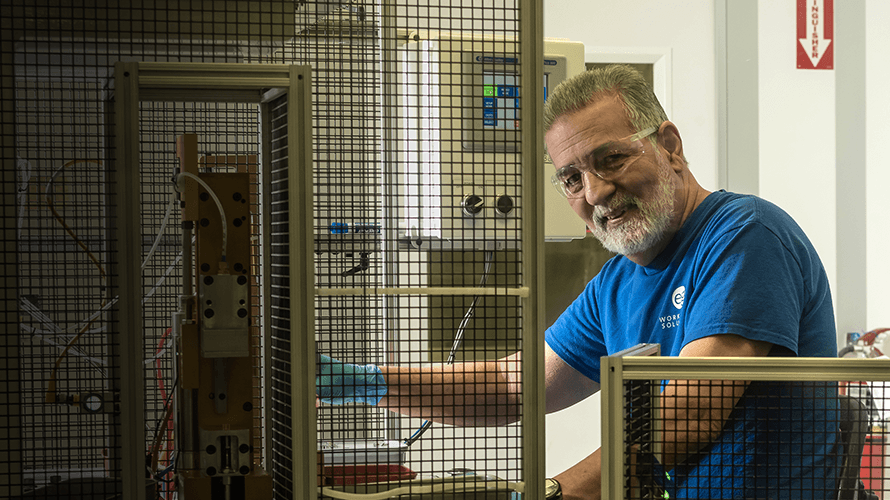When you choose a career in the light industrial, healthcare, or public safety field, shift work is typically unavoidable. While working odd hours might not be for everyone, it is a necessity for keeping our communities and economies thriving.
If you’re on the fence about taking on a 3rd shift role, we’ve rounded up 3 reasons why you might be persuaded to join the ranks of the 15 million Americans currently working nights.
IDEAL FOR NIGHT OWLS
Just can’t seem to wake up in the morning? Good news: you don’t have to if you work 3rd shift. Working odd hours gives you the opportunity to “sleep in” without repercussions.
That being said, you should still try to stick to a regular sleep schedule in order to improve your overall health. Since humans are naturally programmed to sleep at night, you’ll need to put in a little extra effort to stay well-rested. Make sure you have a dark, quiet space to retreat to after your shift is completed. Doing so will help minimize your exposure to daytime distractions and help your brain get into relaxation mode.
FREE UP YOUR DAYS
As nice as a traditional 9-5 might sound, sometimes those hours just don’t accommodate daytime responsibilities. Maybe childcare is a concern, or maybe you’re thinking about heading back to school. If that’s the case, working 3rd shift might be the answer. By working flexible hours, you gain a better opportunity to complete those pesky errands without having to take time away from work.
BETTER EARNING POTENTIAL
When you work the night shift, you play an important role in keeping the company thriving. Most employers recognize that you’re making a sacrifice by working odd hours and will compensate accordingly. Usually, you can expect a shift premium (sometimes called a shift differential) to be added to the base pay for your role.
Furthermore, you may be sacrificing a bit of nightlife by working 3rd shift. If you’re okay with clocking into work rather than hitting the bar scene, you’ll also probably notice an increase in your over all savings.
It’s hard to deny that working nights can offer a few opportunities that you wouldn’t get otherwise. So, have we convinced you to accept that 3rd shift job yet?
For more career tips like this, contact us or apply now to speak with a recruiter. We’d love to help you succeed.
The emails, phone calls, and meeting requests just won’t stop flooding in and you’re feeling a bit exhausted. A vacation sounds pretty good right about now, doesn’t it? But, there’s one thing holding you back: fear of actually stepping back and taking that time off.
If this sounds like you, you’re not alone. Over half of American employees—52%, in fact—didn’t use their allotted time off during the 2017 calendar year. While studies show that this percentage is decreasing year-over-year, America still has a lot of catching up to do. In Europe, for example, employers are legally required to grant over 30 vacation days to employees. Those statistics start to feel a bit more chilling when you realize that women are impacted most negatively by the expectation to be “always-on” as they attempt to balance career, family, and the household.
The only way to stop the toxicity of burn out culture is to lead by example. By honoring time away from work, companies can then begin to cultivate a happier and more productive workforce.
BUILD HEALTH
Perhaps the most obvious reason you should be taking your time off is for the sake of your own physical and mental health. Without taking appropriate vacation time, the long-term effects of stress can take negative tolls on both your body and brain.
Additionally, empowering your staff (and yourself) to take time off is a sign of a healthy company culture. Building trust and offering support to one another shows that your team has appropriate boundaries around work/life balance, and their absence might just act as a lesson for appreciating a colleague’s contributions.
BUILD WEALTH
Now, we’re not talking wealth in the traditional sense. (Although that applies here, too—if you aren’t taking your allotted time off, you’re effectively giving hundreds of earned dollars back to your employer each year.)
Wealth takes on many forms, one of the most important being happiness. If you’re ignoring your own well-being in order to crank out more work, chances are that you’re on the road to burn out. Detaching yourself allows you to be more resilient and focused inside of work hours, which leads to increased productivity. Not convinced yet? SHRM states that 78% of HR Directors found that team members that took more vacation days reported higher job satisfaction in the long run.
So, what are you waiting for? Book yourself some time away from the office—your productivity will only benefit from it.
To discuss any matter relating to human resources or workplace wellness, contact EG.
Writing a resume can be tricky: you don’t want to share your entire life history, but you also don’t want to risk getting passed up for lack of information. It’s a balancing act that many people struggle with daily.
This guide walks you through the key things a recruiter looks for in a resume. Following these simple guidelines will help you get your application in front of the right people, right away.
1. UPDATED CONTACT INFORMATION
We know, this probably sounds like a no-brainer. However, you’d be surprised to find how many people forget to keep this important section up-to-date. With the many places you need to update your contact information after a life-changing event like a move, your resume is probably last on the list of things to do.
“If we’re looking at your contact information, there’s a reason: we want to contact you!” says Sarah, recruiter at EG. “Make sure you update your phone number and email so we can to reach you about the position you applied for,” she adds.
2. DETAILED HISTORY
Be sure that you’re giving the employer an accurate glimpse into why you’re qualified for the position you’re applying for.
In your resume, you’ll need to hit these major categories:
- Work Experience: detail tasks, accomplishments, and measurable goals you achieved that are relevant to your desired line of work. Make this as detailed as possible so the employer understands how you can contribute within the role.
- Volunteer Experience: this section can be used to supplement your work experience and demonstrate that you’re someone that cares about their community. Don’t discredit side jobs or gigs: they’re important, too!
- Education/Credentials: this section should be used to demonstrate your eligibility for the role. Pro-tip: if you’ve been in the workforce for a few years, put this section after your work experience and don’t worry about sharing information about your GPA – it might give the impression you’re stuck in the past.
3. CLEAN & CONCISE LAYOUT
Last of all: don’t overdo it. We know, that sounds opposite of the last piece of advice, but hear us out. A well laid out and concise resume can make a huge first impression on a potential employer. Try to keep it at one page, and don’t delve too far back into your work history if it’s no longer relevant.
You should also pay attention to the design and layout of your resume. If you aren’t the design-type, you can always access one of the many free, downloadable templates available online. They’re simple to use and will help you portray yourself in a professional manner. Zeroing in on layout helps the employer process your resume quickly and helps them decide whether you should move forward in the process.
If you follow these steps, you’ll be in the running for that job you’re after in no time.
For more help with your job search, apply now or contact EG. We’d love to help you succeed.



